4 Initiatives Giving Real Hope to Farmers Hit Hardest By The Corona Lockdown
Instead of dumping their produce and losing their life savings, these initiatives in Satara, Bengaluru and on Twitter are helping farmers earn an income during the COVID-19 lockdown. If successful in the long run, these initiatives could revolutionize farming in India.
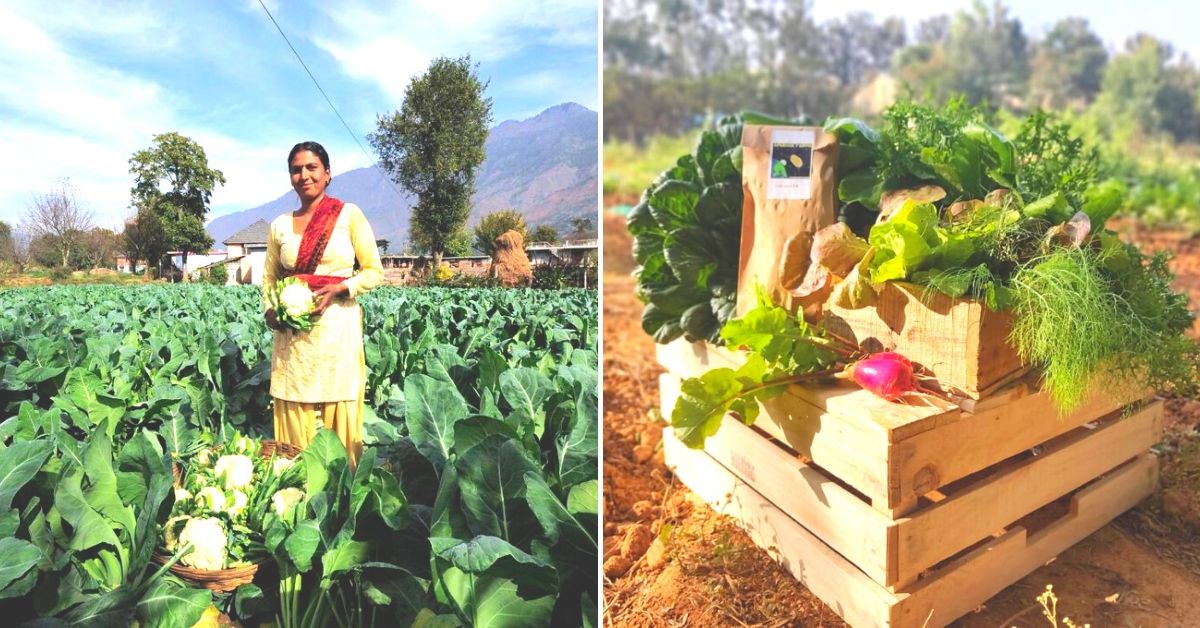
One of the most unfortunate consequences of the nationwide lockdown has been the severe financial loss that farmers have had to face. Unable to harvest their crops and sell them in the market, they have either been forced to leave their produce to rot on the field or dump it on the roadside.
However, novel initiatives are emerging out of different corners of India that are helping farmers to sell their produce in a manner that it directly reaches consumers, and eliminating the need for middlemen.
Here are four of them:
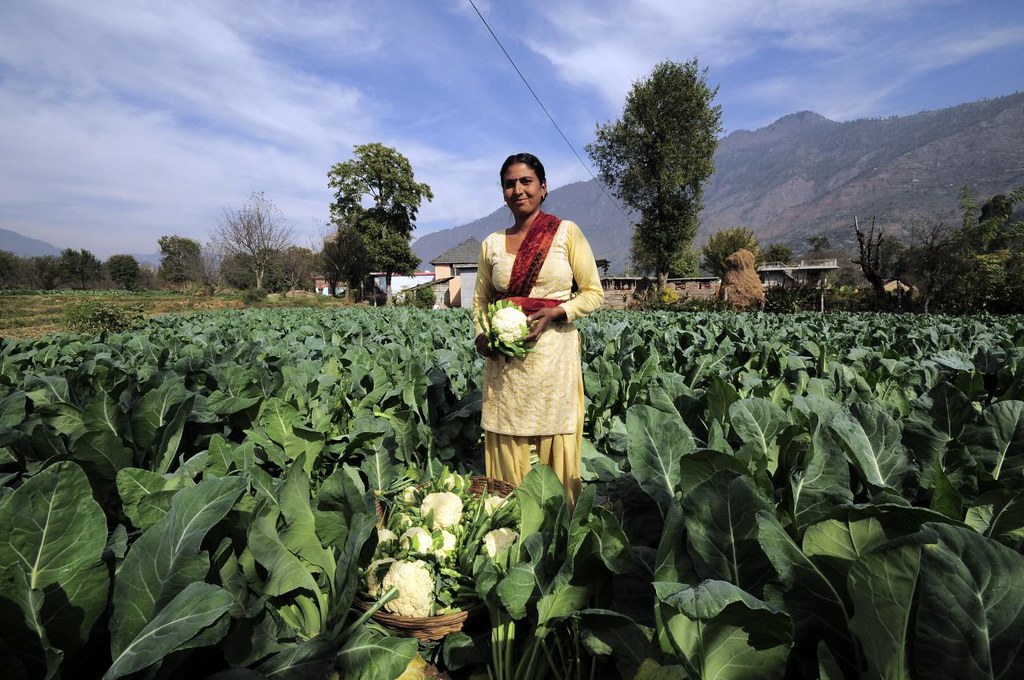
1. Harvesting Farmer Network- Pan India, Social Media
Entrepreneur Ruchit Garg’s company Harvesting India Private Limited runs a farmers-only app called Harvesting Farmer Network, a virtual support group advice on crops and agricultural practices. “We reach 10 lakh farmers across 22 states via app, SMS, toll-free number and WhatsApp as well,” says Ruchit.
Stuck in Chandigarh during the lockdown, he couldn’t find fresh vegetables anywhere. Moreover, he was reading reports of how farmers were dumping their produce and suffering untold losses because they couldn’t sell.
“On the morning of April 12, when I was washing my dishes, I was simultaneously thinking about what I could do to help these farmers. What I decided to do was set up a Twitter profile called Harvesting Farmer Network (HFN), post stories about farmers on my app looking to sell their produce and see what response it elicits on social media,” says Ruchit to The Better India.
Within nearly two weeks of opening the HFN account on Twitter, he helped approximately 200, predominantly small farmers, sell their produce and avoid any major losses. Now, celebrities and politicians have now jumped into the fray.
“On Twitter, there are people who have bought tons of produce from these farmers. Some families from Bengaluru, for example, I know have bought 300-400 kg worth of items. In some cases, we were able to mobilise some NGOs who helped farmers negotiate a good price for produce like tomatoes. We are reaching out to as many farmers as possible, post their requirements and gather as many people on social media to help facilitate the sale of their produce,” he says.
His priority is to help small and subsistence farmers who will probably lose an entire year’s worth of savings if they don’t find a buyer. Nonetheless, verifying, whether they are small farmers, is a tricky process. Currently, the process is manual and based on gut instinct by asking those farmers seeking help pointed questions.
Some rules –
(1) Call local farmer only – if he/she is too far they won’t be able to deliver. Call farmer to find out(2) Buy in bulk – if you want to buy, likely your neighbors as well. Place bigger order to make it worth
(3) Respect this community and be fair to each other.
— Harvesting Farmer Network (HFN) (@HarvestingFN) April 12, 2020
“For example, if a farmer says ‘I have 500 tons of produce I want to sell’, we know he’s not a farmer or at least not a small farmer that we are targeting. In our upcoming website (HarvestingFN.com), we will set up a system that will establish greater trust between farmers and buyers as it will make the process more efficient. We will ask them to post pictures of their crop every month and geo-tag their farms, among other steps,” he says.
While HFN is also working closely with senior government officials and even the officials in the Indian Railways to facilitate the transport of their produce, Ruchit suggests that buyers work with local farmers. The latter can hop on a truck and bring their produce in the two-three hour window when the curfew is lifted.
“We are hoping to facilitate the entry of farmers across India. Moving forward, we hope to get farmers to take pictures, videos and post ground reports so that they build up a relationship of trust with our buyers,” he concludes.
**Muskmelon from Jaunpur, UP**
Name : rakesh chandfa
Mobile : 9919666299
Crop : muskmelon(mridula)
Quantity : 20 tonn
Place : vill. Badaganw, shahganj, jaunpur, UP (223101) pic.twitter.com/CSd6Fpu191— Harvesting Farmer Network (HFN) (@HarvestingFN) April 25, 2020
2. Direct-to-Home Model in Satara, Maharashtra
After consulting with farmers, elected representatives and the local administration, Dr Avinash Pol, a Satara-based dental surgeon who works with the Paani Foundation, an NGO, came up with a solution that he was sure would work for both consumers and farmers.
It was decided that the surplus produce would be collected from farmers and be transported in vehicles to each of the 40 wards in the city.
What this model does is ensure delivery of fresh groceries directly to the resident’s doorsteps, prevent large crowds in vegetable markets and ensure farmers earn some income instead of forcing them to dump their produce and suffer losses.
It was an idea that caught the attention of Sanchit Dhumal, the Additional Chief Officer of the Satara Municipal Corporation.
After collecting the names of farmers, details of the drivers and vehicles, he said permission would be granted for these vehicles to deliver the produce directly to residents. The local police were informed of this initiative and asked to ensure that there are no roadblocks for these deliveries. With the necessary permissions, farmers were allowed to buy diesel from petrol pumps to operationalise his delivery model, says Pol in this column for NDTV.
Today, there are 100 vehicles collecting produce from farmers, travelling to the city and delivering it to residents. For every ward, there are designated vehicles that sell vegetables. Meanwhile, the local municipal corporation made public a list of farmers with their mobile numbers and which ward they would make deliveries to. Residents directly place their orders with farmers and the vegetables are delivered to their ward and on occasion to their doorstep as well.
This model has been extended to the Sangli, Solapur and Akola districts as well. Whether this supply chain model will work in the long run is debatable. But what it does is open up exciting new avenues from farmers who have long been held at the mercy of middlemen.
More importantly, a direct interface has been established between farmers and consumers, which allows the former to earn their due and the latter to access the kind of produce they want directly from source.
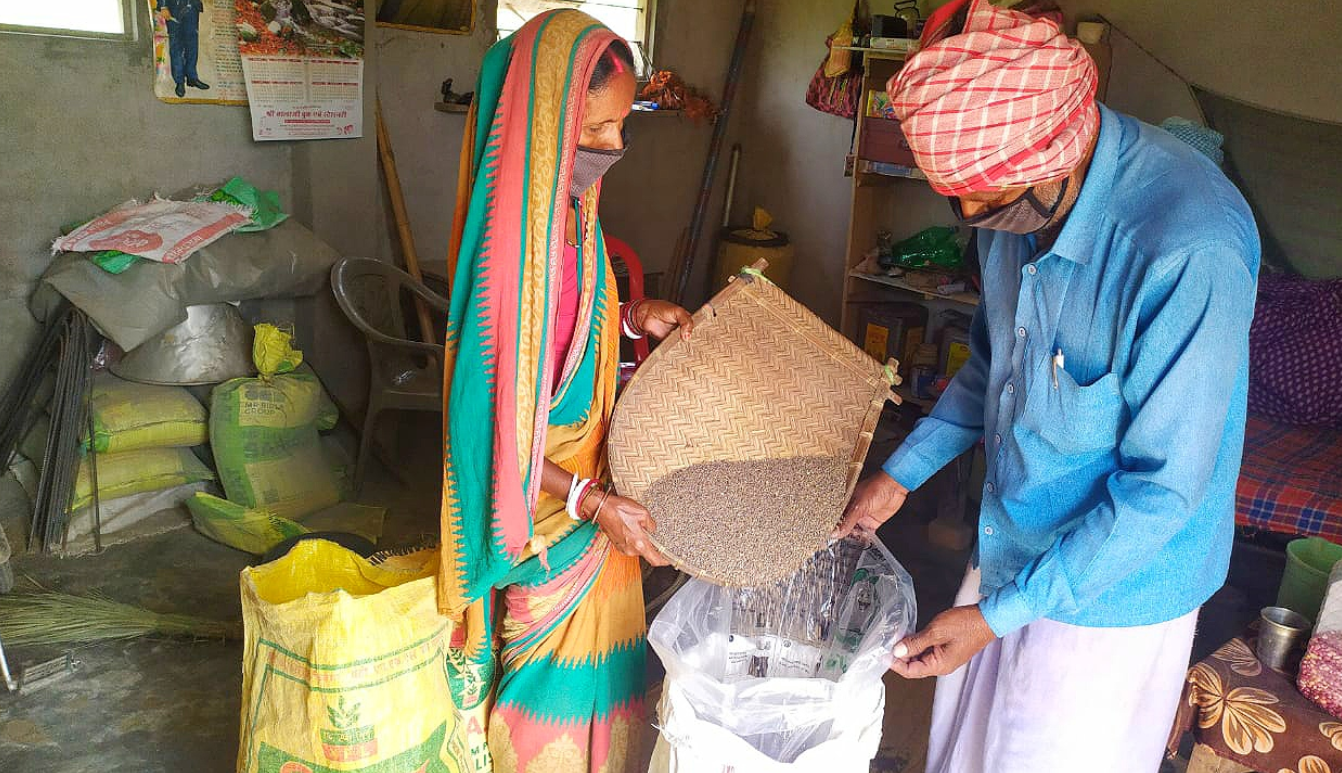
3. Grape Farmers and UAS Alumni Association, Bengaluru
Thanks to the efforts of the University of Agriculture Sciences (UAS) Alumni Association, hundreds of grape growers in and around the city had come together to establish a direct line to consumers into the city instead of letting their produce wither away.
Overcoming the barriers set by the lockdown and market structures, grape growers are directly selling to resident welfare associations (RWAs) in the city.
Compared to the 2-3 tons that HOPCOMS, the state-run procurement agency, picks up from farmers, this direct marketing initiative is moving 250-300 tons a day, according to this report in the Deccan Chronicle.
With markets shut and exports out of the question thanks to the lockdown, what the association did in early April was to organise grape farmers in and around the city using WhatsApp into a collective and made a series of pitches to RWAs in the city.
To further understand the market, members of the association went to the HOPCOMS centre near Lalbagh where they were procuring grapes for Rs 45 per kg from farmers, but selling it through their outlets near the procurement centre for a stunning Rs 115 per kg.
They even made visits to farmers in Nearby Kolar and Chikkaballapur areas and began working with farmers to arrive at a price that works for them. The price they arrived at was Rs 55 per kg.
After striking a deal with various RWAs, they dispatched their first order of 1.5 tons. For consumers, instead of buying grapes at Rs 120 per kg from the market, they were now getting the produce directly for a price no more than Rs 60 per kg.
Not only are consumers paying less, but they also have access to quality grapes directly from the farmer. By last Friday, farmers ended up selling over 250-300 kg per day in Bengaluru alone.
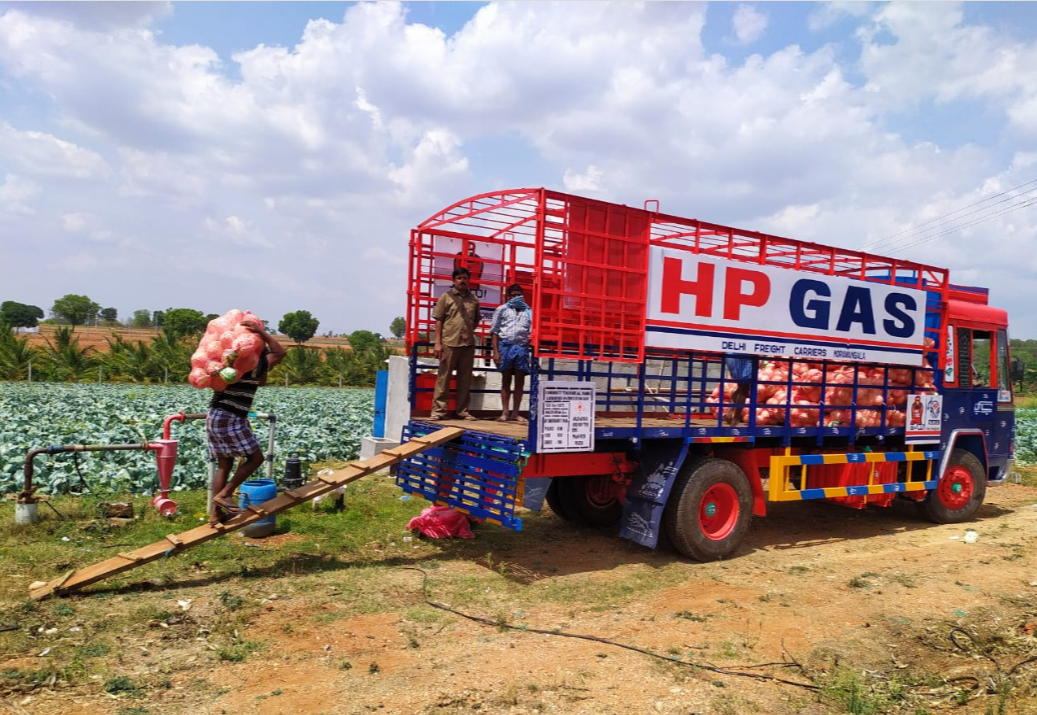
4. Spudnik Farms, Organic Food
Sumeet Kaur, the founder of organic farm-to-table venture Spudnik Farms, has been serving hundreds of customers across Bengaluru for more than a year now. She partners with small and marginal farmers from Bengaluru rural, Mallur, Chintamani and Chikkaballapur to ensure that her customers get the freshest produce possible.
“Partnering with Spudnik has helped my farmers tap the urban consumer base for their organic products. Besides, we also provide them with technical guidance or agriculture, plant disease management, organic pest control etc. Most of them had been practising organic farming diligently for decades even before the concept became popular in India,” shares Sumeet, speaking to The Better India, in this article.
When the nationwide lockdown was announced, Sumeet reassured her customers that they would continue delivering vegetables and fruits. And she kept that promise even at a time when when major retail chains have shut down grocery deliveries.
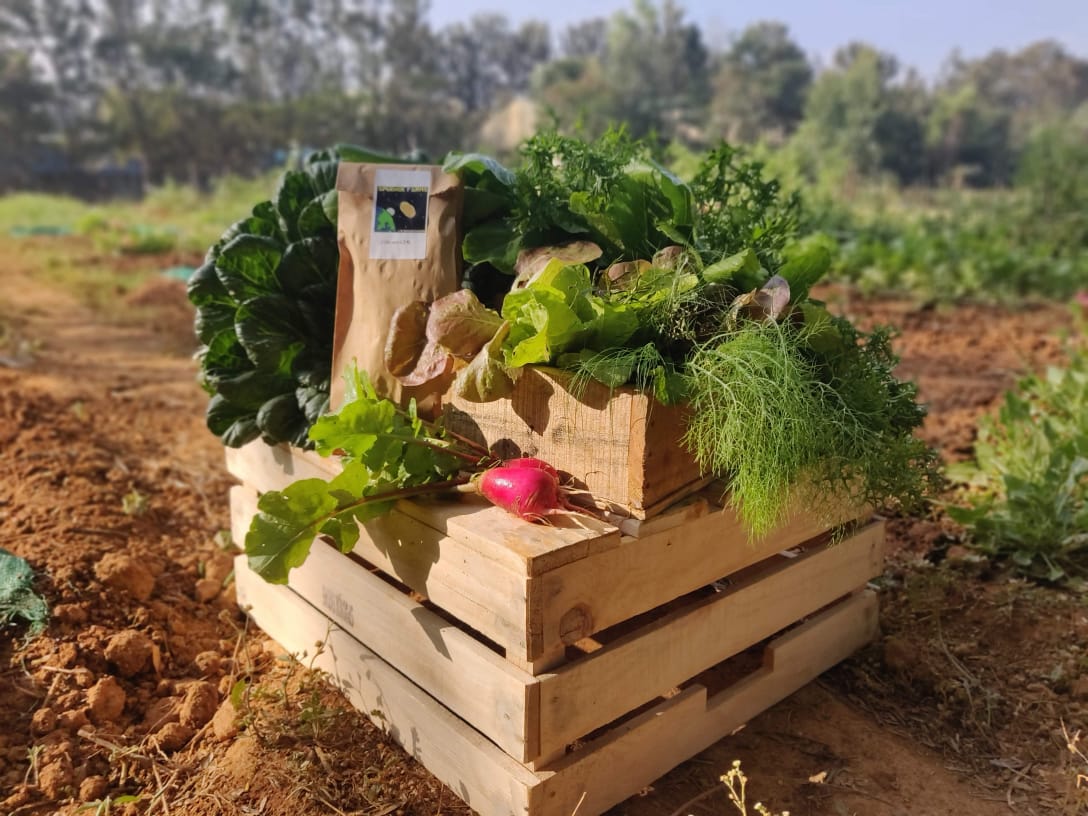
On March 24, when their truck was stopped on the way to a farm pickup, she reached out to senior government officials on social media platforms, appealed to them and got the green light to continue the service. Her farmers also helped out as much as possible. “When one of our women farmers heard about the dire shortage of supplies in the city, she reassured me that she would continue sending the staples for her customers from her stock at home,” she adds.
She also mentions that the delivery partners take all necessary precautions—like wearing masks, gloves, sanitisers—while on the job. he has also introduced contact-less deliveries.
A crisis of this magnitude, albeit harrowing for large segments of farmers in India, has opened up unique opportunities all over the country.
Those who survive the COVID-19 induced lockdown may well have to adapt towards utilising new avenues of earning income, which is more profitable, and hopefully, sustainable in the long run.
Also Read: This Odisha Lady Farmer is Distributing Free Vegetables to the Needy in 15 Villages!
(Edited by Gayatri Mishra)
Like this story? Or have something to share? Write to us: [email protected], or connect with us on Facebook and Twitter.
If you found our stories insightful, informative, or even just enjoyable, we invite you to consider making a voluntary payment to support the work we do at The Better India. Your contribution helps us continue producing quality content that educates, inspires, and drives positive change.
Choose one of the payment options below for your contribution-
By paying for the stories you value, you directly contribute to sustaining our efforts focused on making a difference in the world. Together, let’s ensure that impactful stories continue to be told and shared, enriching lives and communities alike.
Thank you for your support. Here are some frequently asked questions you might find helpful to know why you are contributing?


This story made me
-
97
-
121
-
89
-
167











